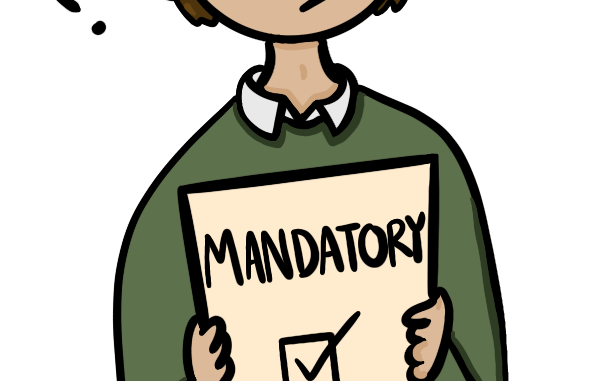
This article is an open response to “Mandatory voting creates engaged community” by Isabel Rekow from the last issue. The author alleges that mandatory voting will increase underrepresented participation and expand access to the ballot box. I do not challenge these assertions, but I think that mandatory voting presents issues which that author did not acknowledge in the piece.
First, mandatory voting will not address the issue of a lack of political knowledge. Sure, it will likely motivate some people to research candidates and issues, but it will not motivate everyone. To be fully honest, I do not want someone voting if they do not know what they are voting on. Party labels are helpful in general elections, but in primaries, voters are asked to choose a candidate from within a party. Further, there are no party labels on propositions or referendums.
Sending an individual to the polls without any knowledge of what they are voting on just does not seem very productive. Do not get me wrong: I will defend the right of every individual to vote however they want, no matter how much or how little they know about the election. However, I would not require people who have never thought about politics to go to the ballot box and cast a vote without first addressing their lack of political knowledge.
Second, mandatory voting assumes that high turnout is the holy grail of democratic participation. It is not. High turnout does not necessarily track with a healthy democracy. Take, for instance, the 2020 presidential election in the U.S., which saw a nationwide voter turnout of about 66% of the voting-eligible population. This is significantly higher than any election since 1932, yet 2020 was not a good year for democracy. According to the Washington Post, Turkey routinely sees voter turnout in the 80% range, but is not generally regarded as a healthy democracy.
Conceptually, if people are very satisfied with their government, they do not feel the need to vote. Low voter turnout can be indicative of a government that works well and that people feel no need to change.
Third, a point of agreement: Voting should be more accessible. However, we do not need mandatory voting to make that happen. We could change the election day to Saturday. We could make “election Tuesday” a national holiday. We could, if we wanted, enfranchise felons, or stop requiring voter ID laws. None of these measures require mandatory voting, and it seems to me that increasing access to the ballot in a piecemeal fashion is more doable than trying to pass a mandatory voting law. I am not convinced that a mandatory voting law could be passed in the United States — we lack the political will.
Lastly, I take issue with the idea that forcing individuals to vote is an acceptable restriction on political liberty. It is completely true that no one has unlimited liberty. Our liberties are pretty seriously curtailed. However, historically, we try to curtail political liberties less than other freedoms.
I also take deliberate nonparticipation as a legitimate act of political speech. I would not want to restrict someone’s ability to refuse to participate in the political process without compelling evidence suggesting that the goal of democracy will be significantly furthered by that restriction. At this point in the process, I am not convinced that obligating people to vote will actually improve our democracy, and as such, I am not ready to restrict the liberty to do nothing.
Subscribe to the Mossy Log Newsletter
Stay up to date with the goings-on at Lewis & Clark! Get the top stories or your favorite section delivered to your inbox whenever we release a new issue.

Leave a Reply